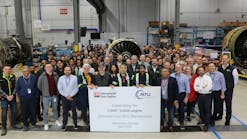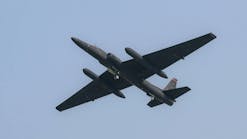Q. What did you do before that?
A. I have had 20 years of aviation maintenance management experience and related military acquisition and modernization program management. I am a retired Air Force Master Sergeant with significant experience in fuel cell systems, operation, integration, packaging, and balance of plant support. My experience includes identifying, integrating, demonstrating, and evaluating diesel, turbine, and fuel cell electric power systems; control systems; heating, ventilating, and air-conditioning (HVAC and Air Cycle) systems; hydraulic systems; and lighting systems.
Q. What are the goals of Concurrent Technologies Corporation (CTC)?
A. CTC is committed to assisting industry and government in achieving world-class competitiveness. Through a unique concurrent engineering framework, CTC provides comprehensive solutions that improve our clients' product quality, productivity, and cost effectiveness. The professional staff of CTC has the requisite experience, knowledge, and resources to rapidly and effectively meet the diverse needs of our clients by transitioning appropriate science, technology and management applications.
Q. What sort of projects are you working on now?
A. I am currently involved in all fuel cell projects ongong at CTC. One initiative is for Warner-Robins Air Logistics Center/Advanced Power Transformation Office and was developed to reduce logistical requirements for the support of aircraft operations by introducing current technology into the Aerospace Ground Equipment (AGE) inventory. The C2P2 Initiative was conceived because the Air Force can no longer afford to devote intensive airlift operations to deliver single-use, stove-piped equipment to theaters of operations. The C2P2 Initiative demonstrated the feasibility of common core Proton Exchange Membrane Fuel Cell (PEMFC) technology as the primary, multi-use power source for flight line and non-flight line power production requirements.
Another project is working to perform activities within the UTC Fuel Cells (a United Technologies Company) "Route-Ready" PEMFC power plant for heavy-duty vehicles design and development program. CTC's tasks include the design, development, test, and validation of advanced integrated components intended to improve the fuel cell power plant performance and durability and decrease power plant cost. The integrated components will combine multiple functions into one unit.
A 5 kW Plug Power Uninterruptible Power Supply (UPS) fuel cell has been acquired
by the FCTec (Fuel Cell and Test Evaluation Center). This hydrogen-fueled unit
was installed at the FCTec facilities in March 2003. This system produces 48
volts of DC power and is constructed for an outdoor installation. The testing
of this fuel cell is but one outcome of the mission of the FCTec to accelerate
the commercialization of fuel cells through independent testing of systems such
as this.
Q. What are some of the trends/changes you've seen while in the GSE industry?
A. Research and Development
funds are very limited available in the military and civil aviation support
industry, yet innovation continues and emerging technologies are continuously
integrated into products. The GSE move to electric drive is impressive and is
out pacing the auto





